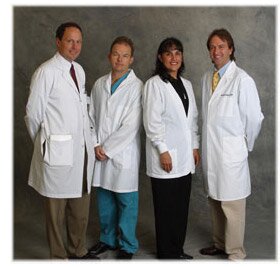|

Colorado Infertility Clinic Attracts Patients From Around the Globe
The Colorado Center for Reproductive Medicine (CCRM) was founded by Dr. William Schoolcraft in 1987 to provide a complete spectrum of infertility treatments, including in vitro fertilization (IVF) and other assisted reproductive technologies. Today, more than 40 percent of CCRM’s patients travel from all parts of the United States and abroad for infertility treatment. Susan Biggs of Houston is one of these people.
It is worth noting that our current standard of living (remark, we are not talking about most third world countries) provides us with comfort at almost all levels. This means, first of all, that technological development is aimed primarily at people and meeting their needs. So, it is not surprising that reproductive medicine has also greatly upgraded. You can read more about the interaction of comfort-development, development-human body on special resources, or contact essays writers.
"I went to a website that lists success rates and looked at all the statistics," said Ms. Biggs, after her doctor in Texas told her she sent people to Denver when IVF didn’t work. "It was obvious which clinic she sent people to."
At the age of 43, Ms. Biggs visited the Colorado Center for Reproductive Medicine and underwent IVF to become pregnant with her second child using her own egg.
 More than 1,600 new patients visit the Colorado Center for Reproductive Medicine each year. In addition to Dr. Schoolcraft, reproductive endocrinologists Dr. Eric Surrey and Dr. Debra Minjarez care for patients at the Center. More than 1,600 new patients visit the Colorado Center for Reproductive Medicine each year. In addition to Dr. Schoolcraft, reproductive endocrinologists Dr. Eric Surrey and Dr. Debra Minjarez care for patients at the Center.
Dr. Surrey is the president-elect of the Society for Assisted Reproductive Technology and has special expertise in endometriosis-related infertility. Dr. Minjarez is bilingual in Spanish, and focuses on the management of infertility patients with polycystic ovarian syndrome (PCOS) – in addition to working with patients seeking IVF.
One reason so many out-of-state patients travel to CCRM is for individualized testing. Before any treatment, patients are screened for hidden causes of prior or potential IVF failure. "It wasn’t a cookie-cutter process," said Ms. Biggs. "They did backup procedures and safeguards."
Another contributor to the Center’s high success rates is its IVF laboratory. Under the direction of Dr. David Gardner, the Center can grow embryos to a blastocyst stage, allowing the greatest chance of implantation and pregnancy. Of particular note, CCRM is one of the nation’s leaders in the use of pre-implantation genetic diagnosis (PGD), an advanced method of screening for genetic disorders.
CCRM is different from other clinics in that it employs a full-time research staff, which has made many important breakthroughs in the field of infertility. In a recent study published in Fertility and Sterility, CCRM researchers found that the latest technology supports transferring single embryos instead of two or more, thus eliminating the risks of multiple births.
Currently the team is focusing on the physiology, genetics, and culture of the human embryo, and is working toward the development of new freezing procedures for eggs and embryos. CCRM’s researchers are also developing new tests that will determine the viability and health of a given embryo prior to transfer. This will allow the Center to transfer the embryos most likely to implant and result in pregnancy.
With the goal of helping its patients realize their dreams of having a baby in mind, the physicians and staff at the Colorado Center for Reproductive Medicine continually strive for excellence. Now almost a year old, Susan Biggs’ baby girl is a testament to this goal.
To learn more about the Colorado Center for Reproductive Medicine, or to view the Center’s success rates, visit www.colocrm.com.
|